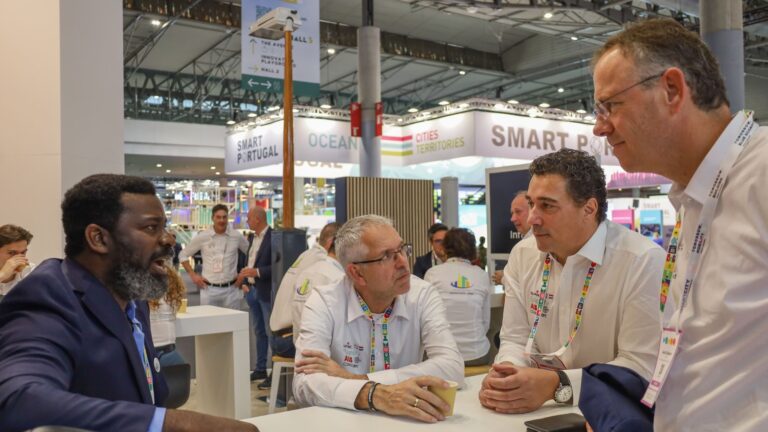How Malmö is using innovative procurement as a tool for circular development
By Lucas Dietrichson, Communication Strategist, City of Malmö and Everica Rivera, Communications Officer, ICLEI World Secreteriat
The City of Malmö is one of Sweden’s biggest public purchasers. Through smart procurement, the city has been able to contribute to sustainable development and support circular thinking. Here are three examples:
1. Raising the bar for sustainable IT products
The City of Malmö used to buy IT products from a supplier with generic sustainability labeling but old devices often ended up in people’s drawers, instead of being recycled. However, this changed in 2018 when the City of Malmö procured a strategic partner for supplying IT products.

This shift helped put pressure on manufacturers to develop products with higher sustainability standards. In addition to requirements on power consumption, eco-labeling, and recyclability, the new procurement rules require longer warranty periods, incentivizing product repair. The agreement also includes services for repairing and recycling products. One result of the partnership is the yearly return of IT units for recycling has increased dramatically. Before the agreement was put in place, around 5,000 units were returned annually; today that number has increased to almost 13,000.

In 2020, Procura+, a network for sustainable procurement, awarded this initiative second prize under the category of “Innovation Procurement of the Year”. The jury’s motivation highlighted the collaboration the City had built up within the framework of the agreement, which meant that the City could continue to raise the bar for the requirements it sets in its IT purchases. Now a majority of purchased products are certified.
2. Extending the life cycle of furniture
With a traditional framework agreement for furniture, a lot of furniture gets thrown away – not even recycled – when an office moves, or when a chair gets stained. To address this challenge, the City of Malmö has been working on incorporating circular criteria in two different furniture framework agreements.
One framework agreement focuses on the use of secondhand furniture as well as services to prolong the life of furniture. The second framework agreement includes newly produced furniture extending over several user areas within the municipality. By using e-commerce for these products, the municipality has the possibility to recommend specific furniture and products with certain circular and sustainable criteria, which are evaluated during the procurement process. This includes longer warranties (minimum 7 years), removable and washable upholstery, and easily dismantled furniture for both reconditioning and recycling purposes. This way the municipality can help guide purchasers in making the best choices.

3. Shifting towards circular sign management
Signs are often thrown away because a business moves or changes name. The materials used in many signs also have a negative impact on nature. Aluminum requires energy-intensive refinement methods, and most plastics are produced using fossil fuels. The generated waste is also difficult to handle because it contains electronics.
In 2021, the City of Malmö implemented requirements for eco-friendly materials and circular handling of materials when it finalized a procurement of signs. The requirements call for reuse within the organization, reuse within the supplier’s organization, and recycling of materials.

Going beyond the products
In addition to several environmental requirements in procurements, the City of Malmö also urges suppliers to be sustainable in other aspects. Therefore, social, and economic requirements are also used. For example, working conditions among suppliers are audited. The experience of the City has also shown that tougher social and environmental requirements don’t always make products more expensive. In order to encourage sustainable procurement further, the City of Malmö has sustainability coordinators that facilitate sustainable procurement.







